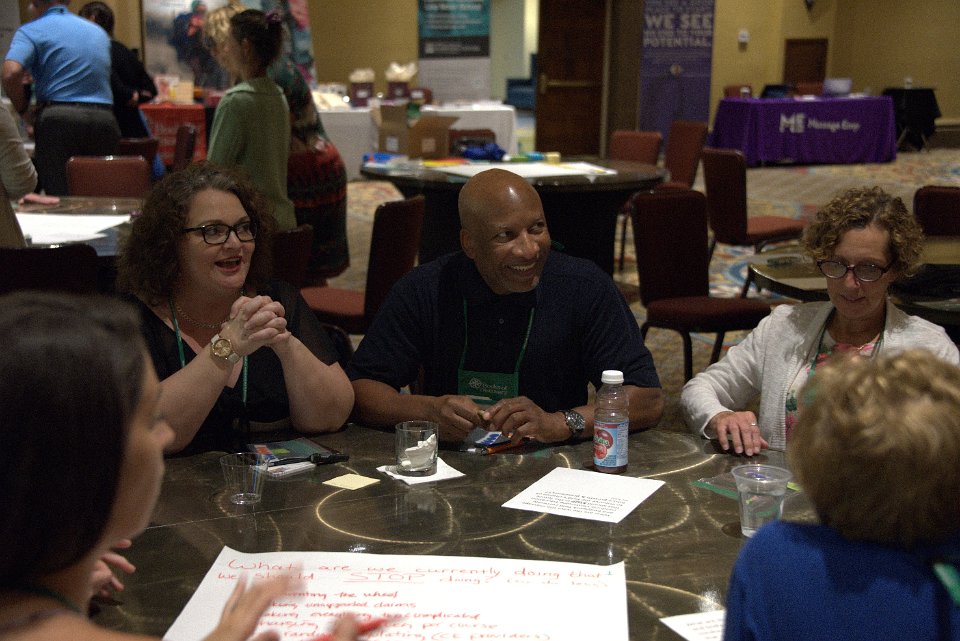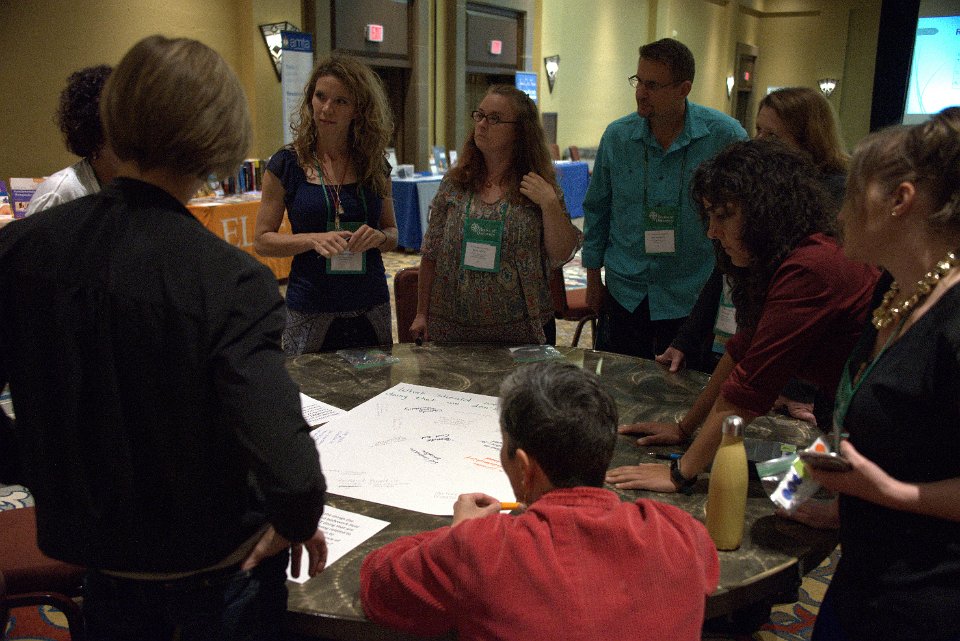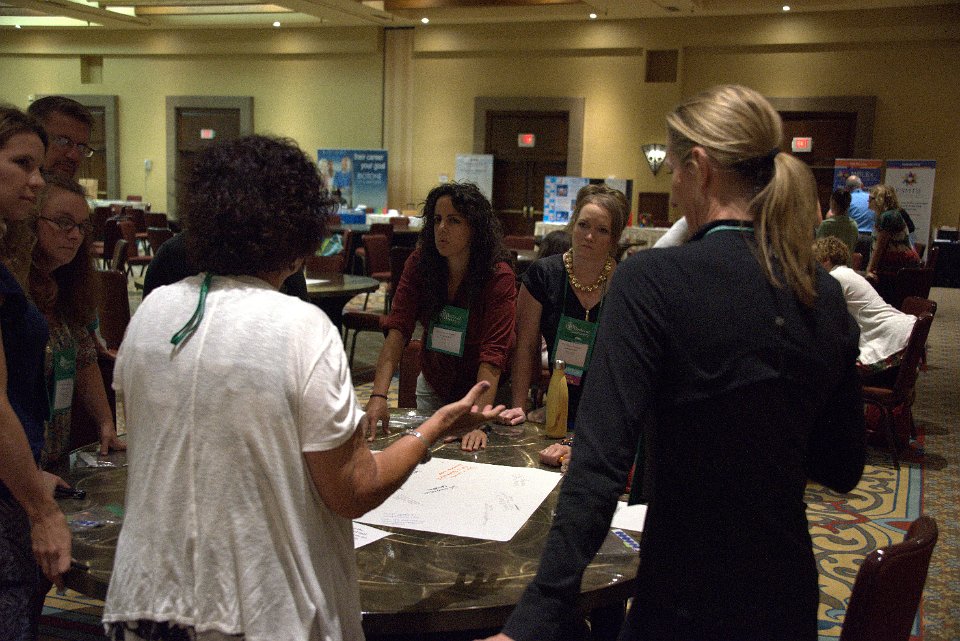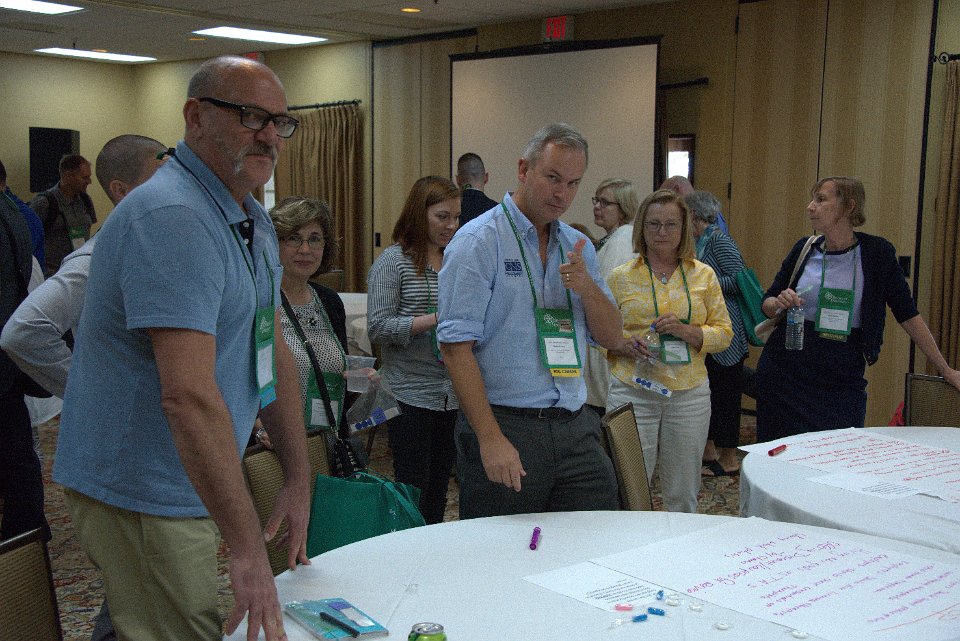
5 Qualities of an Effective Leader
Guest Article By: Randall Clark
I was sitting at the AFMTE conference in Tucson last Congress, and I was asked by one of the people in the Alliance why I chose to attend.
I told him that this was the conference where I could sit and have real conversations with most of the leaders in the field of massage.
At some of the larger conferences, the leaders in the field are typically mobbed by the participants, and it is very difficult to get one-on-one time with them.
On the last day of the conference, I was looking at who was on the board and all the other leaders at the tables, and it struck me that at 43, I was one of the younger participants in the room. This left me concerned for the future of our profession. We can only rely on this group for few more years, and then someone is going to have to step up.
Photos from the 2017 Educational Congress
This led me to the overall question of leadership. One of my mentors, Tony Robbins, says that 80% of the chokehold on the growth of any organization is the psychology of its leader. So, what does it take to be an effective leader? Well, in my research, a few qualities seem to be consistent in a leader.
By definition, a leader is a servant. To truly lead you must be willing to serve a cause that is greater than yourself. This is true in your family, your business or the massage field.
The larger the entity that you serve, the greater the sacrifice—but also the greater insight you will receive.
A leader is a visionary.
It is the leader’s responsibility to see things as they are right now and to see things as they can be. The leader sets what is to be accomplished and why it needs to be accomplished.
A leader is a team builder.
Leonard Read is well-known for this observation in his economic essay, ‘I, Pencil’. In it he describes the specialized knowledge required to make this deceptively simple looking object.
At a minimum, you need to know about Growing Cedar Trees, Harvesting Trees, Milling Lumber, Manufacturing a Tint for the Milled Lumber, Mining and Refining Graphite, Manufacturing Glue, Manufacturing Lacquer, Mining and Refining Zinc and Copper into Metal Sheets for the Collar, Growing and Refining Castor Beans for the Eraser.
Clearly, no single person could possibly know how to make a pencil! In other words, you can’t do it alone.
A leader is a nurturer.
Not only does the leader need to assemble a team, but she/he needs to make sure that the team is growing. Growth is an essential human need. If your team isn’t growing, your organization isn’t growing.
A leader maximizes available resources.
Leaders don’t make excuses such as lack of money, people, the economy, etc. They understand that when something doesn’t get accomplished, that it is not because of a lack of resources but rather a lack of resourcefulness.
This certainly is not an exhaustive list, but if you can embody each of these qualities, whatever group you are leading will benefit.
To all the current and past leaders in Massage Therapy, “THANK YOU!” The progress that has been made under your watch has been incredible.
To all of you out there that might think that you are ready to step up to a leadership position “DO IT NOW!”
Find a current leader that can serve as a mentor. The profession needs your fresh perspective to move it forward but without a mentor you will find that you are wasting a lot of time reinventing the wheel.
Interview with Randy Clark & Kevin Wade
“Sometimes you forget how much you know and how much you have to give back,” says Randy about moving the profession forward
Want to help promote excellence in massage education?
There are many ways to get involved!
Randy Clark is the President of the Center for Neurosomatic Studies and the St. John – Clark Pain Treatment Center. He is also a member of the AFMTE marketing committee.





